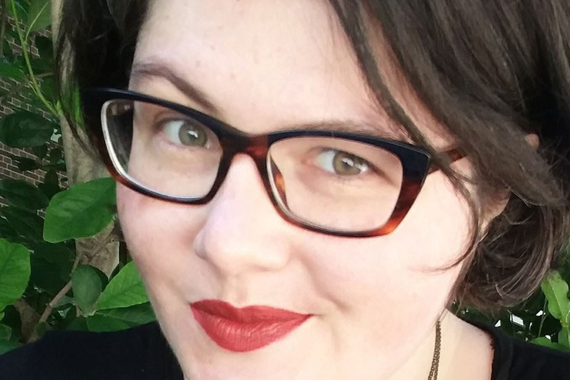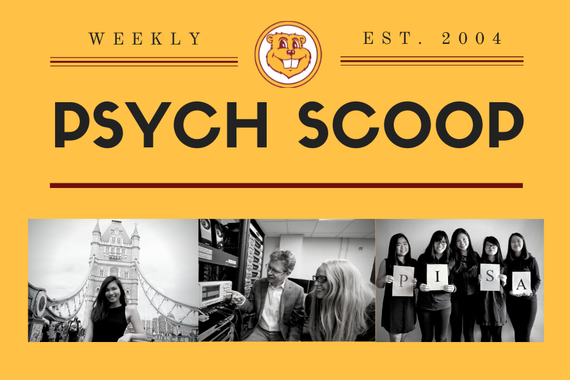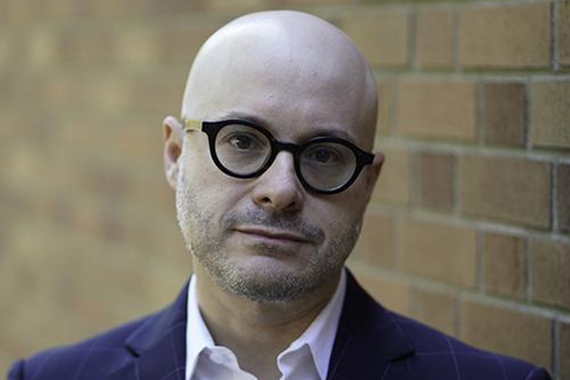Driven to Equity: New Faculty Tackle Health and Well-being
In fall 2023, the Department of Psychology will welcome two new assistant professors–Drs. Alex Ajayi and Melissa Ertl–to the Counseling area. These two distinguished scholars will aid the department in further expanding its emphasis into the critical area of health equity (see Driven to Advance Health Equity), building on its well-known history and excellence in basic and applied research that explores determinants and outcomes of health and wellness. While Ajayi’s and Ertl’s education and career paths have coincidental points of convergence (e.g., they both completed undergraduate degrees in Wisconsin), their experience and training shaped their research and interests in different ways that will allow them to uniquely contribute to the field via their new roles as UMN Psychology faculty. Ajayi studies social marginalization and inequality, and how we can address some of the disparities that exist in health and education. Ertl’s area of focus is on the prevention of illness and the promotion of health among marginalized and/or underserved groups, with a particular focus on the intersection of mental health and other aspects of health (e.g., sexual health, substance use).
Honing In
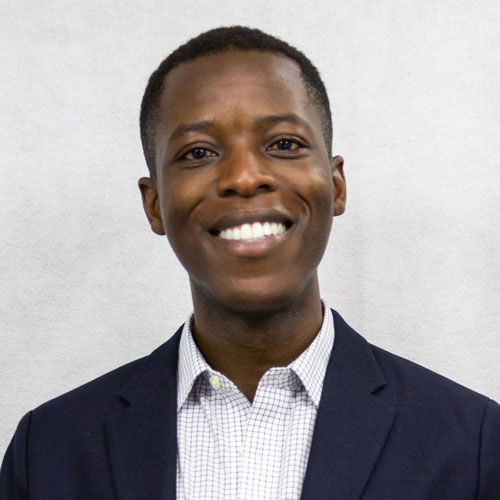
Ajayi described that growing up, he developed an awareness of how social location can impact people’s lived experiences, particularly with health and well-being. While completing his clinical internship at Hennepin Healthcare for his doctoral degree in the Department of Psychology at the University of Minnesota, he witnessed that impact firsthand and was able to leverage his education and training to help patients cope and heal. Hennepin Healthcare is a Level I adult and pediatric trauma center and safety net hospital in Minneapolis, MN, that serves a significant population of people who are traditionally underserved in the community. As an intern there, Ajayi was confronted with “some of the most traumatic physical and medical issues” (e.g., burns, car accidents, gunshot wounds) one can experience. Based on his training, though, he understood how physical trauma closely intersects with mental health and psychology, allowing him to help the patients he was seeing “make sense of major medical crises…understand what they’re going through, and give them tools on how to effectively cope.” Later, as a postdoctoral associate with Hennepin Healthcare Research Institute (HHRI), the research arm of Hennepin Healthcare in advancing medical knowledge and patient care, Ajayi again had the opportunity to witness the impact of social location on people’s lived experiences, apply his knowledge gained via research, and implement interventions that affect more positive outcomes for those who are historically underserved. At HHRI, Ajayi was involved in two NIH-funded randomized clinical trials–one integrated behavioral health interventions for persons living with HIV/AIDS with depression and chronic pain, and the other researched and tested an intervention aimed at getting Black men with depression to engage in exercise. In describing the impetus behind the project on Black men and exercise, Ajayi relayed that while the benefits of exercise on mental health are well-researched, most of that research focuses on aerobic exercise, and the participant samples are primarily women. Ajayi stated, “one of the things we know according to research is that men, and Black men in particular face barriers to entry in terms of psychotherapy and other behavioral health interventions. While there are things we can do to make therapy more appealing, it is also critical to offer alternatives to this dominant model.” Because muscles tend to align with masculine norms, Ajayi helped develop a strength training protocol that leveraged fitness trainers to provide resistance training and brief behavioral therapy to support engagement, inviting Black men to participate. His findings showed that among participants, mental health issues decreased demonstrably.
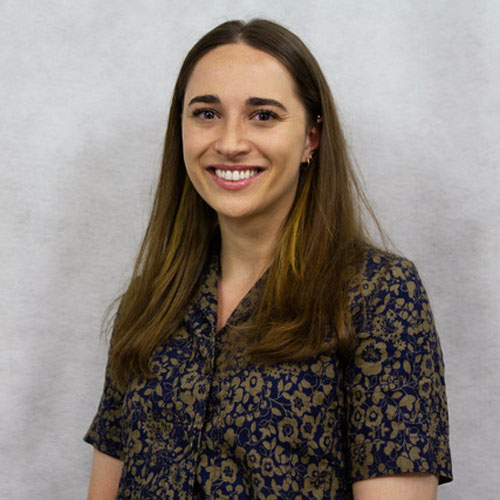
For Ertl, growing up in rural Wisconsin made clear for her, too, how social location can impact the health and well-being of various people. Ertl described that the National Institutes of Health designates areas like her hometown as a medically underserved community, or “medical desert,” because of how far people have to travel for medical attention. In addition to being geographically isolated and far from critical healthcare infrastructure and resources, Ertl noted that healthcare was often perceived and experienced as too expensive in her working-class community; “people had to think twice before calling an ambulance because of worry about what the cost might be.” As a consequence of these challenges, some medical conditions are overlooked or undiagnosed, and others are misdiagnosed or not treated at all, breeding mistrust in the healthcare system. While pursuing a bachelor’s degree in psychology and Spanish at the University of Wisconsin-Madison, Ertl volunteered with a community-based organization focused on promoting familial well-being that served Latina women and their families living in Madison, many of whom were recent immigrants. Through that experience, Ertl saw some of the same challenges she experienced as a child–reduced access to care, lack of affordability, and mistrust of the healthcare system–as they affected another community that had its own unique linguistic and cultural needs being unmet by the system. According to Ertl, “it reinforced for me how people of different privileged and non-privileged identities…interact with healthcare differently… It got me interested in health disparities, how differences in health across groups are products of the lack of responsive healthcare and the lack of equitable distribution of resources that can reproduce and reinforce those inequities.” In her counseling psychology doctoral program at the University at Albany - SUNY, Ertl further delved into this area of focus, conducting her dissertation research on the influence of ethnic identity commitment, discrimination, and sexism on sexual risk behaviors among Latina college students. Following graduate school, Ertl accepted a postdoctoral fellowship at Columbia University and New York State Psychiatric Institute, researching the intersection of mental health and other aspects of health, particularly sexual health and substance use. Her recent work has focused on how to improve HIV prevention efforts for underserved populations, including women in substance use treatment and Latinx adults who use substances. Her recent experience serving as a group facilitator for a smoking cessation intervention for adults living with HIV underscored for her how powerful the influences of mental health, substance use, and sexual health are on overall well-being of people across the lifespan.
Basic and Applied Research
Ajayi and Ertl each think quite intentionally about basic and applied research, and how their work can contribute to both.
Leveraging both qualitative (e.g., interviews, focus groups) and quantitative methods (e.g., large-scale surveys), Ertl’s work to date has been more descriptive in nature, identifying the social and cultural determinants of disparities in health among marginalized populations (e.g., Latinx immigrants, LGBTQ populations, individuals with disabilities and their caregivers, college students from minoritized backgrounds, cisgender women). She knows, though, that her findings can already inform efforts to design, implement, and evaluate culturally appropriate care and interventions. Ertl herself is about to make that pivot; her next project is focused on designing and delivering an HIV prevention intervention for Latina women in New York City. According to Ertl, this project will “build on my prior work, but move me forward in working collaboratively to be part of the solution…to help empower communities to participate in and co-create interventions to promote health.” Now that Ertl has joined the UMN Department of Psychology, she intends to shift her NYC-based work to Minnesota-based work over time, developing relationships and strong ties with local communities and organizations. Specifically, Ertl is interested in implementing community-engaged research practices to partner with communities in Minneapolis on areas of health and well-being that they identify as areas of important concern, especially related to sexual health and substance use.
Ajayi sees basic and applied research as “co-occurring…they inform one another,” and he’s particularly interested in how they dovetail. He too integrates both qualitative and quantitative methods in his research, depending on the understanding of the phenomenon (e.g., he may start with a case study, then shift to surveys and utilizing predictive models). He also conducts longitudinal research (e.g., a study that examined identity, personality, and well-being during COVID), knowing that measuring participants over time is important in terms of showing how people change. Currently, he serves as a co-principal investigator (PI) on a multi-institutional National Science Foundation grant focused on supporting low-income students in Science, Technology, Engineering, and Mathematics (STEM). In the last 2 years of the grant, he will take on the role of PI, leading the knowledge generation effort to better understand the factors underlying successful academic achievement and persistence in STEM, especially for students who come from under-resourced and economically disadvantaged backgrounds. Like Ertl, Ajayi noted that he wants to be “part of the solution,” in addition to furthering our understanding of a particular problem. Additionally, now that Ajayi has joined the UMN Department of Psychology, he intends to delve further into community-based, participatory research, in particular via a connection he is developing with a local organization that serves African American families in support of their wellness.
Engaging with Students
Prior to joining the UMN Department of Psychology as an assistant professor, Ajayi was an assistant professor at Augsburg University, a teaching-focused institution in Minneapolis, MN. As such, while Ajayi was developing his research lab, he was also deeply involved in mentoring his students in ways that centered on their interests and encouraged their sense of belonging. He sees building meaningful and supportive relationships with students as an important part of his job;
“...connecting with their ideas and connecting the work to their personal lives and questions…this can have a lasting impact, especially for those who don’t have family members who have done this before [attend a college or university]…Faculty are sometimes the holders of that blueprint for what college will be about…That is something I take seriously about my role. It’s about demystifying the experience for students who may or may not feel equipped to meet those demands.”
Ajayi described that he is excited to start building relationships with UMN students this fall and to continue fostering environments in which learning is co-created. He noted, “In some ways, I’m just along for the ride…providing guidance. Students feeling agency in their own learning and education is very important to me.”
Ertl too is student-centered, especially in terms of fostering their interest and enthusiasm in research. She is especially committed to supporting students with marginalized identities who may also be from underrepresented backgrounds, which is in part informed by her own experiences as a first-generation college student:
“I was someone who entered my undergraduate studies at a Research 1 institution without knowing what that meant… I did not have a basic understanding of the inherent power of research and its distinct potential to improve health and well-being at the collective level. Coming from that background, yet having great mentors and teachers who, through coursework and lab experiences, showed me what research is, what it can do to empower communities, and how I could learn to be a part of the process and come to enjoy it… that was transformational for me. I was one of the first people to get a four-year degree in my family, and I was the first to go to graduate school and receive a PhD. I’m really passionate about working with students from underrepresented backgrounds who aren’t sure if research is right for them or how they might fit in…I want to empower students to understand that research can be for everyone. It might feel inaccessible at first, but once you find a topic that you’re passionate about and find people who can support you in your efforts, those are the keys to getting meaning out of this work and to working with others to make a difference.”
Both Ajayi and Ertl noted that they are thrilled to be accepting students into their PSY 5993: Research Experience course, which will allow them to more closely and directly collaborate with students–students who are “the next generation of UMN psychologists who will have their own impacts on the field.”
The Health Equity Imperative
Health is a concept that affects everyone. Ertl believes that “health is a human right” and that even for those who are not moved by calls for justice, there are ways to frame health equity research and efforts so that even skeptics can realize the imperative (e.g., the “massive economic losses that communities experience when people don’t have good health or healthcare”). Ertl recognizes that individual health is intricately linked to community health and public health. As such, Ertl contends that “being invested in forward progress that leads us on a path to health equity” is core to being a researcher who focuses on mental health and healthcare.
Ajayi too described that it is in all of our interests to “better understand and promote health and well-being so that as a country, as a community, we’re all healthy.” He sees this line of research as being a way to “move the dial,” for those in particular who have been neglected by current healthcare models, or those for whom the current models do not work. According to Ajayi, when we “call in” those at the margins and bring them into the fold in effective ways, we all benefit from a healthier, more educated, and more informed society.
Ertl and Ajayi are well-poised to play a significant role in moving the dial, bringing us closer to the end goal of health equity. We in the Department of Psychology are eager to witness their own forward progress as they partner with students, staff, and faculty along the way.
Read Ajayi’s and Ertl’s Research
Alex A. Ajayi
- Ajayi, Alex A., Tabitha Grier-Reed, and James Houseworth. “In This Together? Exploring Moderating and Mediating Effects of Shared Racal Fate on the Predictive Role of Racial Socialization and Discrimination on Black Activism.” Journal of Black Psychology 48, no. 3-4 (February 2022): 327–359. https://doi.org/10.1177/00957984211067619
- Ajayi, Alex A., Lauren L. Mitchell, Sarah C. Nelson, Jillian Fish, Lovey H. Peissig, José M. Causadias, and Moin Syed. "Person–Environment Fit and Retention of Racially Minoritized College Students: Recommendations for Faculty, Support Staff, and Administrators." Education Sciences 11, no. 6 (May 2021): 271-89. https://doi.org/10.3390/educsci11060271
- Busch, Andrew M., Mark E. Louie, Nicholas J. SantaBarbara, Alex A. Ajayi, Neil Gleason, Shira I. Dunsiger, Michael P. Carey, and Joseph T. Ciccolo. “Effects of Resistance Training on Depression and Cardiovascular Disease Risk in Black Men: Protocol for a Randomized Controlled Trial.” Mental Health and Physical Activity 17, no. 1 (October 2019): 1-9. https://doi.org/10.1016/j.mhpa.2019.100299
- Schachter, Jacob, Alex A. Ajayi, and Phuong Linh Nguyen. “The Moderating and Mediating Roles of Mindfulness and Rumination On Covid-19 Stress and Depression: A Longitudinal Study of Young Adults.” Journal of Counseling Psychology 69, no. 5 (2022): 732–44. https://doi.org/10.1037/cou0000626
Melissa M. Ertl
- Ertl, Melissa M., Jessica L. Martin, Frank R. Dillon, and Hung-Bin Sheu (2022). “Associations Between Ethnic Identity Commitment, Discrimination, and Sexism With Sexual Risk Among Latina College Students.” Journal of Latinx Psychology 10, no. 3 (2022): 207–24. https://doi.org/10.1037/lat0000206
- Ertl, Melissa M., Roberto Rentería, Frank R. Dillon, Rosa Babino, Mario De La Rosa, and Rachel E. Brenner. “Longitudinal Associations Between Marianismo Beliefs and Acculturative Stress Among Latina Immigrants During Initial Years in the United States.” Journal of Counseling Psychology 66, no. 6 (2019): 665–77. https://doi.org/10.1037/cou0000361
- Ertl, Melissa M., Jacob S. Sawyer, Jessica L. Martin, and Rachel E. Brenner. “The Role of Objectification in College Women’s Substance Misuse and Sexual Risk.” Journal of Prevention and Health Promotion 3, no. 1 (December 2021): 68–96. https://doi.org/10.1177/26320770211054359
- Kimber, Justin M., Melissa M. Ertl, Madison R. Egli, and Rachel E. Brenner. “Psychotherapies for Clients with Physical Health Conditions: A Scoping Review of Demographic Reporting.” Psychotherapy 59, no. 2 (2022): 209–22. https://doi.org/10.1037/pst0000397
